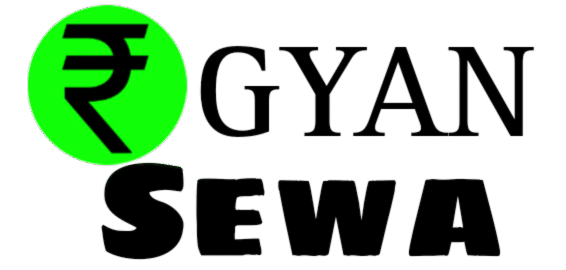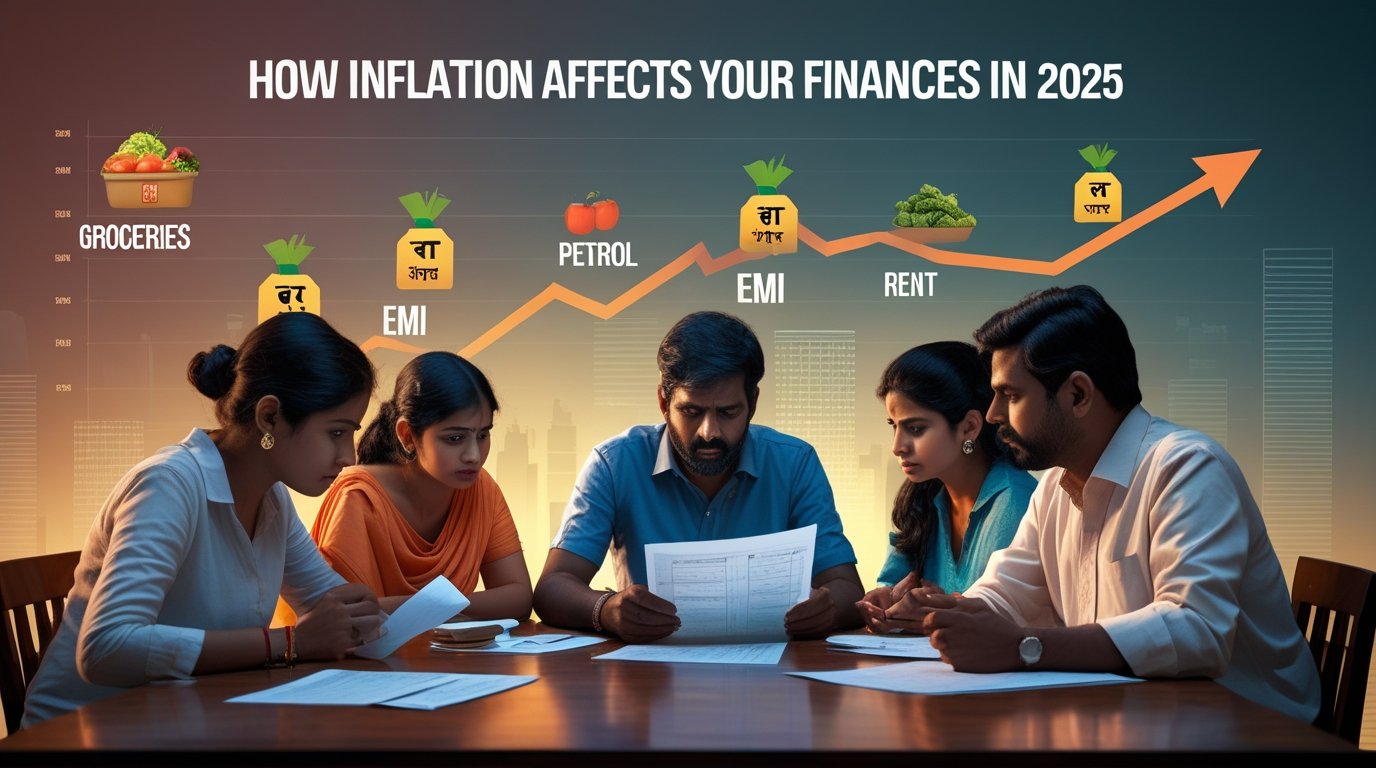Have you noticed your grocery bill creeping up or your savings not stretching as far? You’re not alone. Inflation, the steady rise in prices for goods and services, affects everyone’s wallet. In 2025, with global economies navigating post-pandemic recovery and supply chain challenges, inflation remains a hot topic. This article explores how inflation impacts your daily finances, offering actionable strategies to stay ahead. From budgeting tips to investment options, we’ll help you navigate rising costs with confidence.
What Is Inflation and Why Does It Matter?
Inflation is the rate at which the general level of prices for goods and services increases over time. Measured by indices like the Consumer Price Index (CPI), it erodes purchasing power, meaning your money buys less than it did before. In 2025, inflation rates are projected to hover around 3-4% globally, influenced by energy costs, labor shortages, and geopolitical factors.
Why Inflation Impacts You
- Higher Living Costs: Groceries, rent, and utilities become pricier.
- Reduced Savings Value: Money in low-interest accounts loses value.
- Wage Stagnation: Salaries may not keep pace with rising costs.
Real-World Example: In 2024, a family spending $500 monthly on groceries saw costs rise to $540 by mid-2025 due to a 8% food inflation rate, squeezing their budget.
How Inflation Affects Your Daily Finances
1. Groceries and Household Expenses
Food and household goods are often the first areas where inflation hits. Supply chain disruptions and climate-related crop failures have driven up prices for staples like bread, meat, and vegetables.
- 2025 Trend: Organic and imported goods face steeper price hikes.
- Tip: Buy in bulk, opt for store brands, or grow your own herbs to save.
Case Study: Sarah, a single mother in Texas, switched to meal planning and bulk buying, saving $100 monthly despite a 7% rise in food costs.
2. Housing Costs
Rent and mortgage payments are significant expenses. Inflation pushes up property values, interest rates, and maintenance costs.
- Renters: Landlords pass on higher property taxes and utility costs.
- Homeowners: Rising interest rates increase mortgage payments.
- Tip: Consider refinancing if rates drop or negotiate rent increases.
Suggested Visual: A chart showing average rent increases in major U.S. cities from 2020-2025.
3. Transportation
Fuel prices, driven by global oil markets, directly impact commuting and travel costs. Public transit fares also rise with inflation.
- 2025 Insight: Electric vehicle adoption may offset fuel costs, but upfront prices remain high.
- Tip: Carpool, use public transit, or bike for short trips.
4. Healthcare
Medical costs, including insurance premiums and out-of-pocket expenses, outpace general inflation. Prescription drugs and hospital services are key drivers.
- Tip: Shop for generic medications and use telehealth for minor issues.
Internal Link: How to Save on Healthcare Costs in 2025
5. Savings and Investments
Inflation erodes the value of money in savings accounts with low interest rates. For example, a 3% inflation rate means $10,000 today will have the purchasing power of $9,700 next year.
- Investment Options:
- Stocks: Historically outpace inflation over the long term.
- Bonds: Inflation-protected securities like TIPS.
- Real Estate: Property values often rise with inflation.
External Link: U.S. Treasury’s Guide to TIPS
Strategies to Combat Inflation
Budgeting Smarter
- Track Expenses: Use apps like Mint or YNAB to monitor spending.
- Prioritize Needs: Cut back on non-essentials like dining out.
- Emergency Fund: Aim for 3-6 months of expenses to cushion price shocks.
Increasing Income
- Side Hustles: Freelancing, tutoring, or selling crafts can boost income.
- Negotiate Raises: Research market salaries to advocate for better pay.
Smart Shopping
- Compare Prices: Use apps like Honey or CamelCamelCamel for deals.
- Loyalty Programs: Earn rewards on groceries and gas.
Table: Inflation-Fighting Tools
| Tool | Purpose | Cost | Link |
|---|---|---|---|
| Mint | Budget tracking | Free | Mint.com |
| Honey | Price comparison | Free | JoinHoney.com |
| YNAB | Financial planning | $14.99/month | YouNeedABudget.com |
What’s New in 2025: Inflation Trends
- Digital Currencies: Central banks are testing digital currencies to stabilize economies, potentially impacting inflation.
- Green Inflation: Investments in sustainable energy may raise short-term costs but lower long-term inflation.
- AI-Driven Pricing: Retailers use AI to adjust prices dynamically, affecting consumer spending.
Suggested Video: A 2-minute explainer on how AI pricing impacts inflation.
Pros and Cons of Inflation
| Pros | Cons |
|---|---|
| Encourages spending, boosting economy | Reduces purchasing power |
| Increases asset values (e.g., real estate) | Raises cost of living |
| Can reduce real debt burden | Hurts savers and fixed-income earners |
FAQ Section
How Can I Protect My Savings from Inflation?
To shield your savings, consider inflation-protected investments like Treasury Inflation-Protected Securities (TIPS) or diversified stock portfolios. High-yield savings accounts or CDs with rates above inflation are also options. Regularly review your savings strategy to ensure it outpaces rising costs.
What Are the Best Budgeting Apps for 2025?
Top apps include Mint (free, great for beginners), YNAB (subscription-based, detailed planning), and PocketGuard (freemium, overspending alerts). Each offers unique features to track expenses and combat inflation-driven price hikes.
How Does Inflation Affect My Mortgage?
Inflation often leads to higher interest rates, increasing monthly mortgage payments for adjustable-rate loans. Fixed-rate mortgages are unaffected, but rising property taxes and insurance costs can still impact homeowners. Refinancing at a lower rate, if available, can help.
Why Are Food Prices Rising So Fast?
Food inflation stems from supply chain issues, labor shortages, and climate impacts on agriculture. In 2025, global demand for organic and imported foods further drives prices. Meal planning, bulk buying, and local sourcing can mitigate costs.
Can Side Hustles Offset Inflation?
Yes, side hustles like freelancing, ride-sharing, or online tutoring can supplement income. Platforms like Upwork and TaskRabbit offer flexible opportunities. Dedicate 5-10 hours weekly to earn an extra $200-$500 monthly, cushioning inflation’s impact.
Is Inflation Always Bad?
Not always. Moderate inflation (2-3%) stimulates economic growth by encouraging spending and investment. However, high inflation (above 4%) erodes purchasing power and hurts fixed-income households, making budgeting critical.
Conclusion
Inflation is an unavoidable force shaping your daily finances, from grocery bills to savings plans. By understanding its impact and adopting strategies like smart budgeting, investing wisely, and exploring side hustles, you can stay financially resilient in 2025. Take control today—review your budget, explore inflation-protected investments, and share your tips in the comments below. Want more money-saving ideas? Subscribe to our newsletter for weekly updates!

